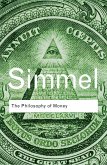This book constitutes a practical guide to the important skills of both theorizing and writing in social scientific scholarship, focusing on the importance of identifying relations between concepts that are useful for explaining social entities and of producing a text that convincingly advances the theory that has been constructed. Taking as its point of departure the distinction between the research process and the reporting process - between clarifying one's ideas to oneself and writing to express these ideas clearly to others - this volume concentrates on writing when theorizing as a way of thinking, emphasizing the series of relations that exist between ontology, epistemology and rhetoric upon which successful theoretical writing depends.
Richly illustrated with practical examples, the book is divided into two parts, the first of which presents techniques for theorizing based upon visualized and logical connections of ideas, concepts and empirical patterns in bothfree and systematic ways, and the second part providing techniques for structuring and presenting arguments in essays, papers, articles or books.As such, Methods for Social Theory offers a toolbox for the development and presentation of social thought, which will prove essential for students and teachers across the social sciences.
Hinweis: Dieser Artikel kann nur an eine deutsche Lieferadresse ausgeliefert werden.
Richly illustrated with practical examples, the book is divided into two parts, the first of which presents techniques for theorizing based upon visualized and logical connections of ideas, concepts and empirical patterns in bothfree and systematic ways, and the second part providing techniques for structuring and presenting arguments in essays, papers, articles or books.As such, Methods for Social Theory offers a toolbox for the development and presentation of social thought, which will prove essential for students and teachers across the social sciences.
Hinweis: Dieser Artikel kann nur an eine deutsche Lieferadresse ausgeliefert werden.
'This book will be an indispensable and accessible guide for students and researchers in social theory. It provides analytical and practical tools for both theorizing and writing in a very pedagogical way. The book inspires to creative analyses and provides guidelines on how to bring order and systematics into an often complex research process. In short, this book is a vital contribution in constructing and presenting social theory.' - Professor Kristina Håkansson, Gothenburg University, Sweden
'This remarkable book explores the development and use of social theory in ways that have seldom been attempted before. Far from being an endeavour that only the minority can and should engage with, everyone, from students to professors can and should theorise. Indeed with the help of the (relatively simple) expedients and tools recommended in this book it should be easy to develop social theory and to use it in the presentation of research findings. Strongly recommended to students - and indeed to fellow professionals - this book embodies the message that making, developing and using concepts is and should be central to the practice of social science.' - Professor Stephen Ackroyd, Lancaster University, U.K
'This remarkable book explores the development and use of social theory in ways that have seldom been attempted before. Far from being an endeavour that only the minority can and should engage with, everyone, from students to professors can and should theorise. Indeed with the help of the (relatively simple) expedients and tools recommended in this book it should be easy to develop social theory and to use it in the presentation of research findings. Strongly recommended to students - and indeed to fellow professionals - this book embodies the message that making, developing and using concepts is and should be central to the practice of social science.' - Professor Stephen Ackroyd, Lancaster University, U.K
'This book will be an indispensable and accessible guide for students and researchers in social theory. It provides analytical and practical tools for both theorizing and writing in a very pedagogical way. The book inspires to creative analyses and provides guidelines on how to bring order and systematics into an often complex research process. In short, this book is a vital contribution in constructing and presenting social theory.' - Professor Kristina Håkansson, Gothenburg University, Sweden
'This remarkable book explores the development and use of social theory in ways that have seldom been attempted before. Far from being an endeavour that only the minority can and should engage with, everyone, from students to professors can and should theorise. Indeed with the help of the (relatively simple) expedients and tools recommended in this book it should be easy to develop social theory and to use it in the presentation of research findings. Strongly recommended to students - and indeed to fellow professionals - this book embodies the message that making, developing and using concepts is and should be central to the practice of social science.' - Professor Stephen Ackroyd, Lancaster University, U.K
'This remarkable book explores the development and use of social theory in ways that have seldom been attempted before. Far from being an endeavour that only the minority can and should engage with, everyone, from students to professors can and should theorise. Indeed with the help of the (relatively simple) expedients and tools recommended in this book it should be easy to develop social theory and to use it in the presentation of research findings. Strongly recommended to students - and indeed to fellow professionals - this book embodies the message that making, developing and using concepts is and should be central to the practice of social science.' - Professor Stephen Ackroyd, Lancaster University, U.K








